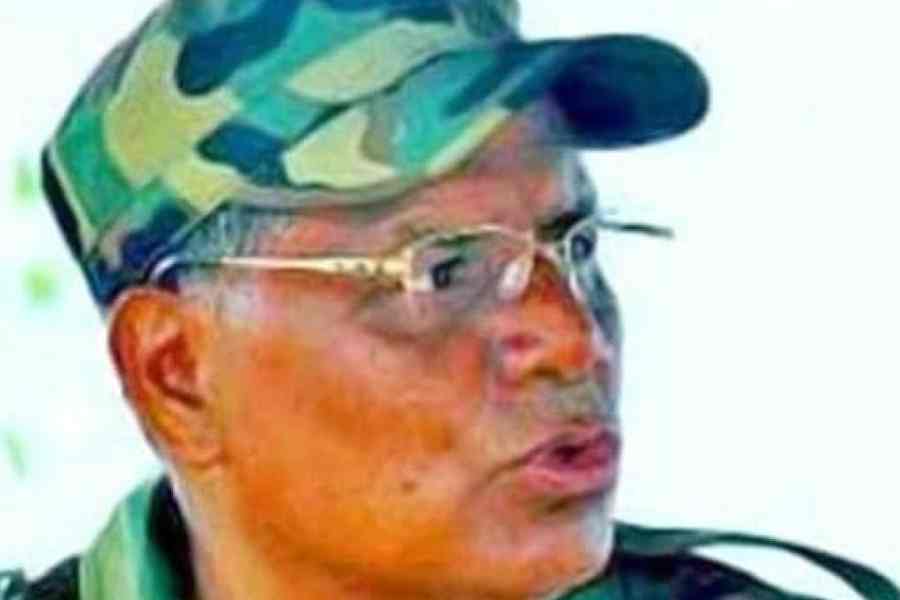Bangladesh High Court on Wednesday commuted the death sentence of Ulfa-I commander-in-chief Paresh Baruah to life imprisonment, compounding security concerns for India’s northeastern states.
According to the Bangladeshi media, the high court also acquitted Lutfozzaman Babar, state minister for home affairs in the BNP-Jamaat-e-Islami government between 2001 and 2006, and five others who were sentenced to death in connection with the 2004 illegal arms haulin Chittagong.
“Baruah has been on the run since 2009 and is believed to be operating the banned outfit and its subversive activities from somewhere on the China-Myanmar border…. He remains most wanted by the Indian agencies,” said a source in the Indian security establishment.
The fugitive Ulfa leader — along with Babar and the then industries minister Motiur Rahman Nizami — had co-ordinated with Pakistan’s ISI for the arms and ammunition consignment worth around $4.5-7 million that reached Chittagong from the Beihei port in China on the night of April 1, 2004. Police had seized 10 trucks carrying the weapons from the state-owned Chittagong Urea Fertilizer’s jetty before they could reach Ulfa and other insurgent groups based in India’s Northeast.
“Baruah, Babar and others had hatched a plan to destabilise India…. Today’s verdict means Dhaka is not worried about India’s security concerns,” said the security expert.
According to him, the verdict also signals Bangladesh’s return to the 2001-06 days when the country had become a haven for Indian insurgent groups.
The verdict, he added, could be construed as Dhaka’s “welcome back” message to the insurgent groups such as the National Socialist Council of Nagaland (NSCN), United National Liberation Front (UNLF) and the People’s Liberation Army (PLA) of Manipur that had set up their bases in Bangladesh during the BNP-Jamaat regime.
“These organisations had been using the Chittagong port to procure arms and ammunition and create instability in India,” he said.
After coming to power in 2009, the Sheikh Hasina government had launched a crackdown on these terror groups, prompting Baruah and several others to flee the country. Ulfa leaders such as Arabinda Rajkhowa and Raju Barua were nabbed and handed over to the Indian agencies.
“Hasina had followed a zero-tolerance policy towards home-grown or foreign insurgent groups, which paved the way for a healthy relationship between New Delhi and Dhaka…. The Muhammed Yunus-led interim government seems to be following a completely different approach,” said an insider in the Bangladeshi security establishment.
Since coming to power, the Yunus regime has been using the anti-India card to deflect people’s attention from burning issues such as runaway inflation, rampant job losses, decline in domestic and foreign investment and deterioration in law and order.
“Remember the slogans chanted by the key members of the Yunus government immediately after Hasina’s fall…. They were threatening to snap the Chicken’s Neck (the narrow strip connecting the Indian mainland with the Northeast) and take control of the seven sisters,” a veteran Bangladeshi journalist told this newspaper.
He also mentioned Tuesday’s Facebook post of Yunus’s adviser Mahfuz Alam in which he claimed that a “truncated, contained, ghettoized” Bangladesh would never be able to achieve true freedom, before threatening to annex India.
Alam, whom Yunus had introduced as the mastermind of the “revolution” that brought about Hasina’s fall, later deleted the post. “No one from the government decried the post…. You can well imagine the thought process of this government,” said the journalist.
“So, I am not surprised with the court acquitting or commuting the sentences of those accused in the Chittagong arms haul case,” the scribe added.
Some observers have questioned the legal basis of the high court’s verdict at a time when the Bangladesh judiciary has undergone a dramatic change with forced resignations of sitting judges and appointment of people close to the BNP-Jamaat regime.
“Whenever weapons from another country are brought, the consignment has to be accompanied by an end-user certificate.... Did the court receive any fresh document in the form of some end-user certificate to the effect that the items were meant for the Bangladesh Army or any of its security agencies before ordering the acquittal or commuting the death sentences?” an Indian expert said.
“Today’s development in the high court once again proves that there is something horribly wrong with the judicial system in Bangladesh,” the expert added.
The justice system in Bangladesh recently came under scanner after Hindu religious leader Chinmoy Krishna Das was arrested on sedition charges for allegedly insulting the national flag. A Chittagong court refused to grant him bail as no lawyer could represent him following intimidation by a local lawyers’ body.
The deteriorating law-and-order situation in the country was highlighted again on Wednesday after the Awami League alleged that two of its activists in Chapainawabganj district were hacked to death the previous night for writing “Joy Bangla” on the walls of their homes.
In Gazipur on the outskirts of Dhaka, at least four people were killed and over 100 injured when followers of two factions of the TablighJamaat clashed over controlof the Ijtema ground earlier this week.
The Bangladesh Army and other elite agencies such as the BGB and the RAB had to be deployed to bring the situation under control.
“The inexperience of the Yunus regime in running the country is getting exposed and the authorities are trying to keep people busy by drumming up anti-India sentiments…. Bangladesh is indeed in a crisis,” said a former Awami League MP.











